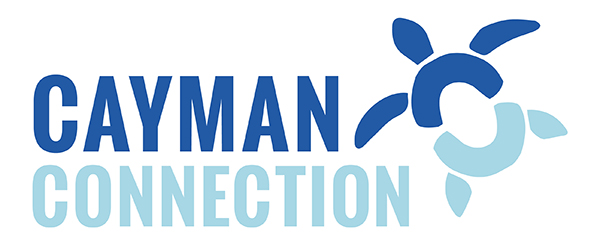Canada FAQs
Our Student Ambassadors, specialised in knowledge of studying and training in Canada provide some critical information to help best prepare you ahead your studies.
Before Applying for a Study Permit
Before applying for a study permit in Canada, you must first apply to a selection of universities. Once you receive your admission letter, officially referred to as a ‘Letter of Acceptance,’ you can proceed with your application for a Canadian Study Permit or Study Visa.
There are some differences in the application process for study permits, depending on whether you are a US citizen, a UK citizen, or a BOTC. You can apply for a Canadian Study Permit online at IRCC. To do so, you will need to create an account and pay the application fee.

Gabriella King
Student Ambassador (Canada)

Jared McGill
Student Ambassador (Canada)
Application Process
1. Acceptance Letter
You must have a Letter of Acceptance from a Designated Learning Institution (DLI) in Canada. The DLI must be recognised by the Canadian government.
2. Proof of Identity
Provide valid identification, which includes:
a. A passport valid for the duration of your stay in Canada.
b. Two recent passport-sized photos that meet Canadian government specifications.
3. Proof of Financial Support
Demonstrate that you have sufficient funds to cover tuition fees, living expenses, and return transportation. Examples include:
a. Bank statements.
b. Proof of a scholarship or funding.
c. A letter from a sponsor.
4. Medical Examination
Depending on your country of origin and the length of your stay, you may need a medical examination conducted by an approved physician.
Police Clearance Certificate
1. In some cases, you must provide a police clearance certificate to confirm you have no criminal record.
Statement of Purpose
You may need to submit a letter explaining your study plans, why you chose Canada, and how your studies will benefit your future career.
Language Proficiency
Some programmes require proof of English or French language proficiency, such as IELTS or TOEFL scores.
8. Application Form and Fees
Complete the study permit application form and pay the associated processing fees, typically online.
Biometrics
You may be required to provide biometrics (fingerprints and a photo) as part of the application process.
10. Intent to Leave
You may need to demonstrate your intention to leave Canada upon completing your studies. Evidence can include ties to your home country, such as family, property, or job prospects.
It is essential to check the specific requirements based on your country of origin and the institution you plan to attend, as these may vary. Visit the official website of Immigration, Refugees and Citizenship Canada (IRCC) for the most accurate and up-to-date information.
Travel to Canada
Once your study permit is approved, a travel visa will be affixed to your passport. British citizens and BOTCs must apply for an Electronic Travel Authorisation (ETA) online at IRCC.
Phone Services in Canada
Canada has numerous phone providers. When choosing a plan, ensure it includes unlimited texts and calls within Canada, as costs vary. Options include both prepaid and postpaid plans. Popular providers include:
– Fido
– Rogers
– Telus
– Bell
Accommodation
When moving to Canada for studies, decide whether to live on campus or off campus. It is recommended to live on campus during your first year to familiarise yourself with your surroundings.
For off-campus living, consider the distance between your accommodation and the university. Some universities provide lists of recommended housing options for students living off campus.
Banking
Choose a bank that offers student accounts, as these accounts typically waive banking fees. Popular banks include:
– TD Bank
– Scotiabank
– Royal Bank of Canada
– Bank of Montreal
– CIBC
Health Insurance for Foreign Students in Canada
Health insurance is essential for all international students studying in Canada, as medical care can be expensive without coverage. The availability and requirements for health insurance vary depending on the province or territory where you plan to study.
Provincial Health Coverage
Some provinces in Canada offer health insurance to international students as part of their provincial health plans. To qualify, you may need to meet residency requirements
and enrol in the provincial health programme. Coverage typically includes basic medical services, such as doctor visits, hospital stays, and diagnostic tests.
Provinces offering health coverage to international students include:
- British Columbia: The Medical Services Plan (MSP) is available after a three-month waiting period.
- Alberta: International students with a valid study permit are eligible for Alberta Health Care Insurance Plan (AHCIP).
- Saskatchewan: Students are covered under the Saskatchewan Health Plan with a valid study permit.
- Newfoundland and Labrador: Students with a study permit valid for at least 12 months are eligible.
- If you are studying in a province that does not provide health insurance for international students, you must purchase private health insurance.
Private Health Insurance
Private health insurance is often required for:
- Provinces without provincial health coverage for international students (e.g., Ontario, Quebec).
- The waiting period before provincial health coverage begins.
- Additional coverage beyond basic medical needs, such as dental, vision, or prescription medications.
- Some universities and colleges include health insurance in their tuition fees through student health plans. These plans may cover:
- Emergency medical expenses.
- Prescription drugs.
- Specialist services.
- If your institution offers a student health plan, confirm the details and determine whether additional private coverage is necessary.
How to Arrange Health Insurance
1. Check Provincial Requirements: Research whether your province offers health insurance for international students.
2. Review University Policies: Many universities automatically enrol students in their health plans. Contact your university’s international student office for guidance.
3. Purchase Private Insurance: If required, compare plans from reputable providers and ensure the coverage meets your needs.
Important Tips
- Always carry proof of your health insurance coverage, such as your insurance card or policy details.
- Understand what is included in your coverage to avoid unexpected medical expenses.
- Enrol in health insurance as soon as possible to avoid gaps in coverage.
- For more information, consult your university’s international student services or visit the website of the provincial or territorial health authority where you will be studying.
